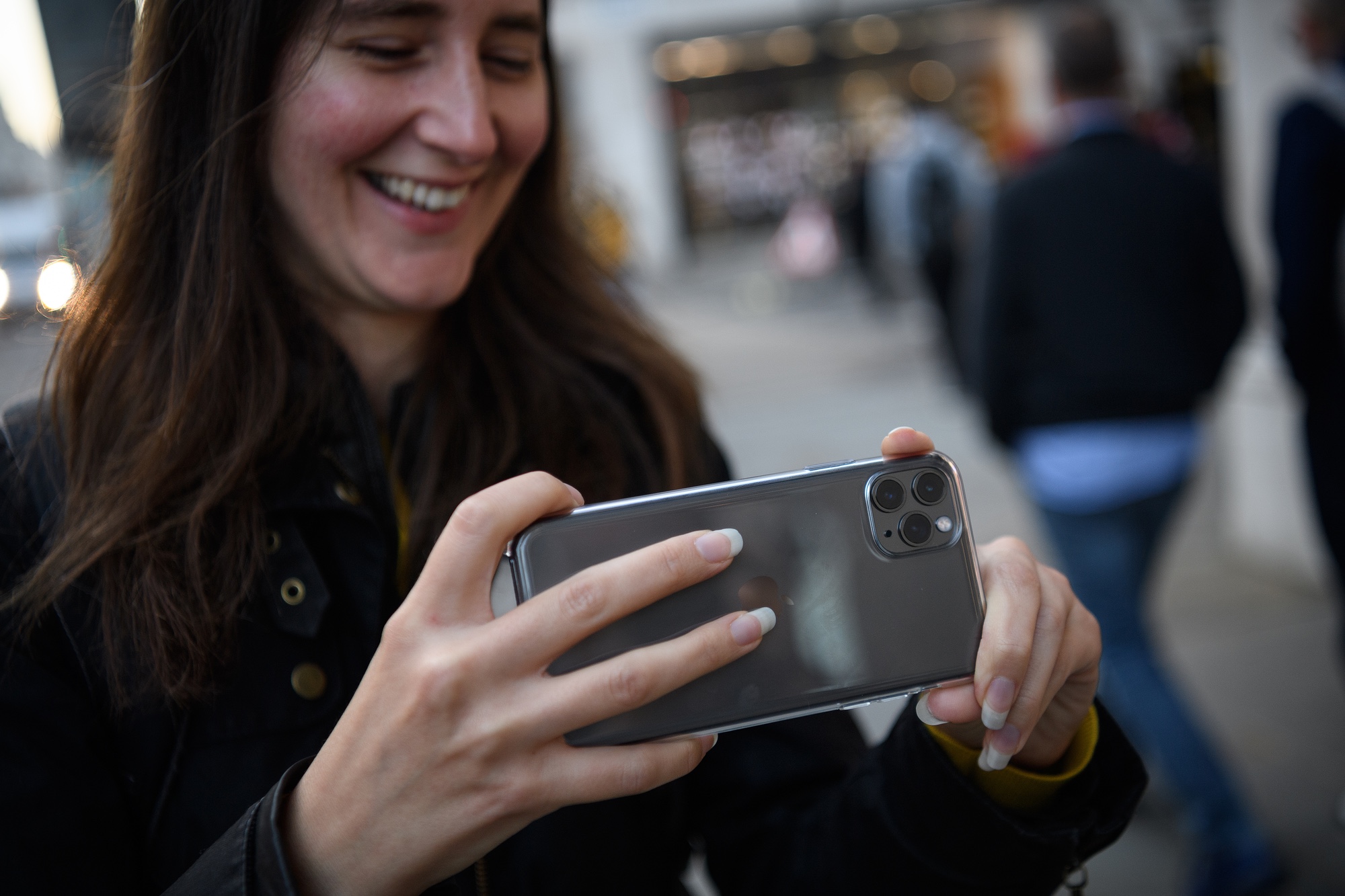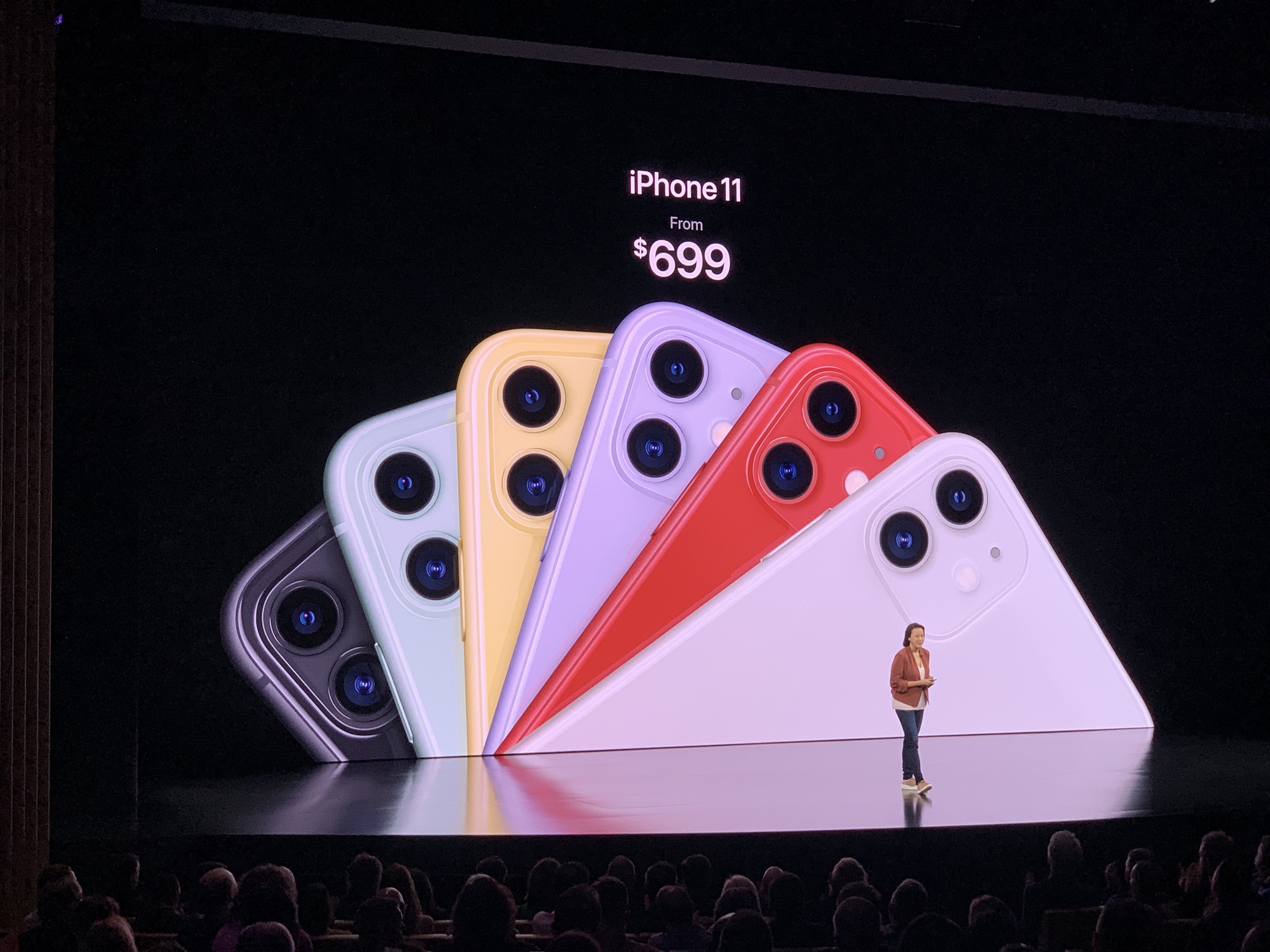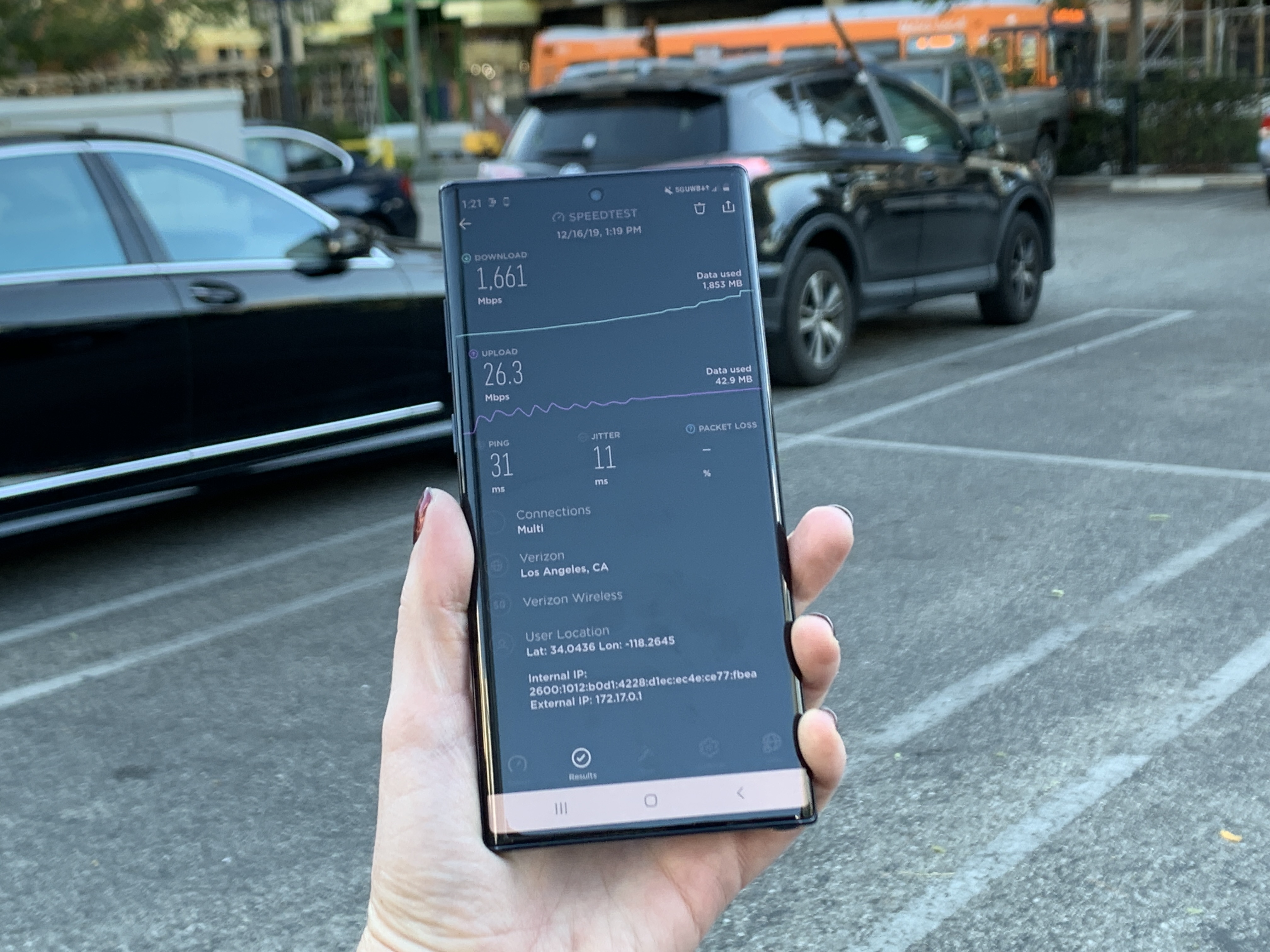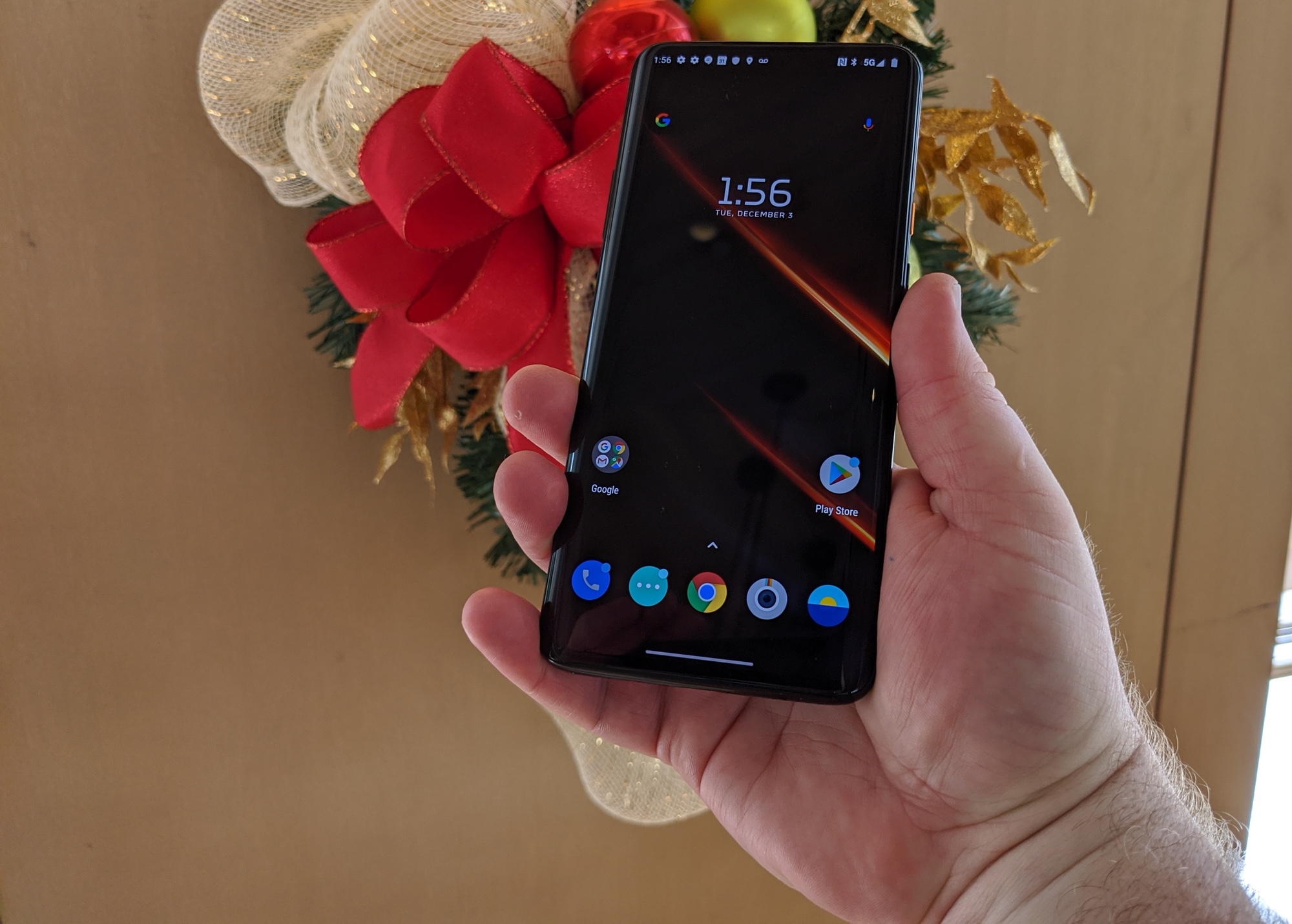Will 5G mean lots of iPhone 12 upgrades? These four factors will decide
A Wall Street analyst predicts a big upgrade cycle in 2020

Will 2020 mean a year of booming smartphone sales for Apple? At least one Wall Street analyst believes so, and he says 5G will be a big reason behind a big year for the upcoming iPhone 12.
"We believe you'll have four phones that will at least be 5G-enabled," Wedbush analyst Dan Ives said during an interview on CNBC yesterday (Dec. 23). "The key question right now is of the installed base [of iPhones], you have 350 million [users ready to upgrade]. That's the window of an upgrade opportunity. I view 5G as opening up the floodgates for what I view as the next supercycle."
In other words, Ives is arguing that around a third of iPhone users currently carrying around one of Apple's phones are ready to upgrade their handsets. And the arrival of a 5G iPhone in 2020 could be the thing that pushes them to make that purchase.
It's a lofty prediction. But for it to come true, there are several factors that need to line up perfectly. And only a few of them are in Apple's immediate control. Here's what needs to happen for 5G to play a big part in the iPhone's success in 2020.
Apple has to release a 5G iPhone
OK, that's pretty obvious. But it's also step one, and Apple isn't exactly forthcoming about its future smartphone plans. Analysts asked Tim Cook back in April about the company's 5G roadmap, and the Apple CEO didn't offer any firm guidance at the time. "We try to select the right time that things come together and get those into products as soon as we can," was all Cook would commit to.

Analysts who follow Apple's supply chain aren't as reticent to talk about what Cupertino might have in store. Ming-Chi Kuo, one of the most prominent of those analysts, forecast back in the summer that Apple would come out with at least two 5G models in 2020. iPhone 12 rumors now suggest that all four new handsets expected to debut in the fall of next year will 5G connectivity.
One of the biggest roadblocks to Apple and its 5G future got cleared earlier this year when Apple and Qualcomm settled a long-running patent dispute over modem technology. The resolution frees up Apple to turn to Qualcomm for 5G modems in its next iPhone. While Apple bought Intel's modem business this year with an eye toward building its own solution, that's a few years from being ready, so Qualcomm — one of the leading forces behind 5G's launch — figures to give Apple a helpful push with the iPhone 12.
Sign up to get the BEST of Tom's Guide direct to your inbox.
Get instant access to breaking news, the hottest reviews, great deals and helpful tips.
5G networks have to become more widespread
If Apple's going to come out with a 5G-ready iPhone 12, that device is going to need a 5G network to run on. Fortunately, all the major carriers made big strides in launching 5G networks this year — but even 5G's biggest advocates wouldn't call the faster wireless technology widespread at this point.
Sprint's 5G network works in nine cities. Verizon just flipped the switch on its 31st city, though the Verizon 5G network is limited to certain sections of those cities and doesn't work terribly well indoors. (Verizon opted to build out its network starting with millimeter wave technology which delivers the fast speeds we were promised with 5G, but doesn't have the reach of low- and midband spectrum.)

Both AT&T and T-Mobile are in the process of rolling out nationwide networks — AT&T's 5G network is currently in 10 cities with plans to go national by mid-2020, while T-Mobile's new network reaches 5,000 cities and potentially 200 million people. But those networks use low-band spectrum, and while coverage is more extensive than what you get from millimeter wave technology at this point, you don't get anywhere near the 1 Gbps (or more) speeds that millimeter wave can deliver at its best. When we tested T-Mobile's 5G network, we found that it was faster than LTE, but only marginally so.
Put another way, carriers' 5G networks are going to need to either become more widespread or much faster by the time the iPhone 12 arrives if people are going to be motivated to upgrade.
5G phones can't be as expensive as they are now
Bargain hunters, avert your eyes. The first 5G phones that arrived this past year cost much more than their LTE counterparts.
Take the Galaxy S10. Samsung's flagship phone debuted at $899. But the 5G version, the Galaxy S10 5G, costs $1,299 or $400 more. You get a larger screen with the 5G phone and a time of flight sensor, but unless you're in an area that's blanketed with millimeter wave-based 5G coverage, you're not getting a lot of bang for your buck.
We don't mean to single out the Galaxy S10 5G. The Galaxy Note 10 Plus 5G also costs $1,299, a $200 premium over the Galaxy Note 10 Plus. And the OnePlus 7T Pro 5G McLaren — a comparative bargain at just $899 — is still a $300 markup over the OnePlus 7T.

We don't know what a 5G-ready iPhone 12 will cost. But tacking anywhere from $200 to $300 onto the iPhone 11 Pro's price — which is already a lofty $999 — isn't the sort of thing that's going to trigger a crush of iPhone upgrades. Surely, some iPhone users will be willing to pay that premium, but many more will likely seek out cheaper models whether they offer 5G or not, or simply choose not to upgrade again. A four-figure 5G iPhone isn't going to spark the kind of iPhone boom analysts like Ives are talking about.
A 5G iPhone will need to be future-proof
Carriers are building out their networks with an eye toward incorporating all types of spectrum — low- and mid-band for a wider reach, millimeter wave for faster speeds. "Real 5G is combination of sub-6 GHz and millimeter wave," Qualcomm CEO Cristiano Amon said earlier this month during his company's annual tech summit.
Whatever 5G connectivity the iPhone 12 has to offer is going to have to take that into account. In other words, while it's important for the iPhone coming out next fall to be able to connect to current 5G networks, it's equally vital for that phone to be able to take advantage of improvements to 5G networks that are likely to come in 2021 and beyond — especially with people holding on to phones longer than ever.
Outlook
We're roughly nine months away from the iPhone 12's launch, so it's a little early to speculate on just how many people are going to be ready to upgrade to a 5G iPhone — and that's before we take into account all the different 5G pieces that have to fall into place during 2020.
The iPhone will be an important driver of 5G adoption — "Apple drives enormous volumes, and that is when these new [5G] networks will start filling up with users," Techsponential lead analyst Avi Greengart said when we spoke to him about the outlook for 5G in 2020. But as important as a 5G iPhone is to the network's rollout, whether people embrace a 5G-ready iPhone 12 isn't entirely in Apple's hands.
Philip Michaels is a Managing Editor at Tom's Guide. He's been covering personal technology since 1999 and was in the building when Steve Jobs showed off the iPhone for the first time. He's been evaluating smartphones since that first iPhone debuted in 2007, and he's been following phone carriers and smartphone plans since 2015. He has strong opinions about Apple, the Oakland Athletics, old movies and proper butchery techniques. Follow him at @PhilipMichaels.

